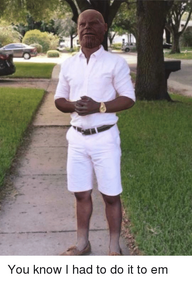- 4,256
- 658
Time to make this clear for everyone in any future matches:
The Beholder's anti-magic cone (and any anti-magic field/spell in general) cannot negate supernatural abilities.
It's come up in a couple matches now, so I had to put a stop to this misconception.
First off, let me explain what the profile currently has stated:
This is the only sca that I know of that describes it disabling the supernatural. This is only ever described in a single edition, on this single scan. (AFAIK) Since then as well as currently , there is no mention of it being able to disable the supernatural.
Now I've heard the argument that D&D is a composite universe, so since it was able to disable everything supernatural in the past, it's able to disable everything supernatural now. I don't see anywhere that we're using composite profiles all along, but I will go on the assumption that this is true. It doesn't matter though.
Everything supernatural in D&D is inherently magical, within every edition. Here is a 3.5 D&D archive describing the supernatural as inherently magical , the same edition the previous scan had came from. Here is the current description of supernatural , also describing it as magical.
It is clear that everything in D&D that is supernatural is also magical. This is why it had been described as being able to suppress it at one point.
This does not mean everything supernatural in other verses are inherently magical.
Supernatural according to wikipedia only means: is something that cannot be explained by scientific understanding or the laws of nature.
Are you really telling me that everything we describe as supernatural can be negated by anti-magic? Lightning was supernatural at one point in human history, is it also negated by anti-magic? Yawning and dreaming is supernatural, we have no idea why humans do it. You're really telling me it will be negated by anti-magic?
So since not everything supernatural in other verses is magical, the logical conclusion is that we cannot allow anti-magic to negate everything that has been described as "supernatural". It must be described as magical in some way in order for there to be any sort of argument.
The Beholder's anti-magic cone (and any anti-magic field/spell in general) cannot negate supernatural abilities.
It's come up in a couple matches now, so I had to put a stop to this misconception.
First off, let me explain what the profile currently has stated:
- Antimagic Cone: Used by its central eye, It releases a cone of anti-magic which will suppress all magic and supernatural powers including its own and can keep the effect up as long as it wants.
This is the only sca that I know of that describes it disabling the supernatural. This is only ever described in a single edition, on this single scan. (AFAIK) Since then as well as currently , there is no mention of it being able to disable the supernatural.
Now I've heard the argument that D&D is a composite universe, so since it was able to disable everything supernatural in the past, it's able to disable everything supernatural now. I don't see anywhere that we're using composite profiles all along, but I will go on the assumption that this is true. It doesn't matter though.
Everything supernatural in D&D is inherently magical, within every edition. Here is a 3.5 D&D archive describing the supernatural as inherently magical , the same edition the previous scan had came from. Here is the current description of supernatural , also describing it as magical.
It is clear that everything in D&D that is supernatural is also magical. This is why it had been described as being able to suppress it at one point.
This does not mean everything supernatural in other verses are inherently magical.
Supernatural according to wikipedia only means: is something that cannot be explained by scientific understanding or the laws of nature.
Are you really telling me that everything we describe as supernatural can be negated by anti-magic? Lightning was supernatural at one point in human history, is it also negated by anti-magic? Yawning and dreaming is supernatural, we have no idea why humans do it. You're really telling me it will be negated by anti-magic?
So since not everything supernatural in other verses is magical, the logical conclusion is that we cannot allow anti-magic to negate everything that has been described as "supernatural". It must be described as magical in some way in order for there to be any sort of argument.
